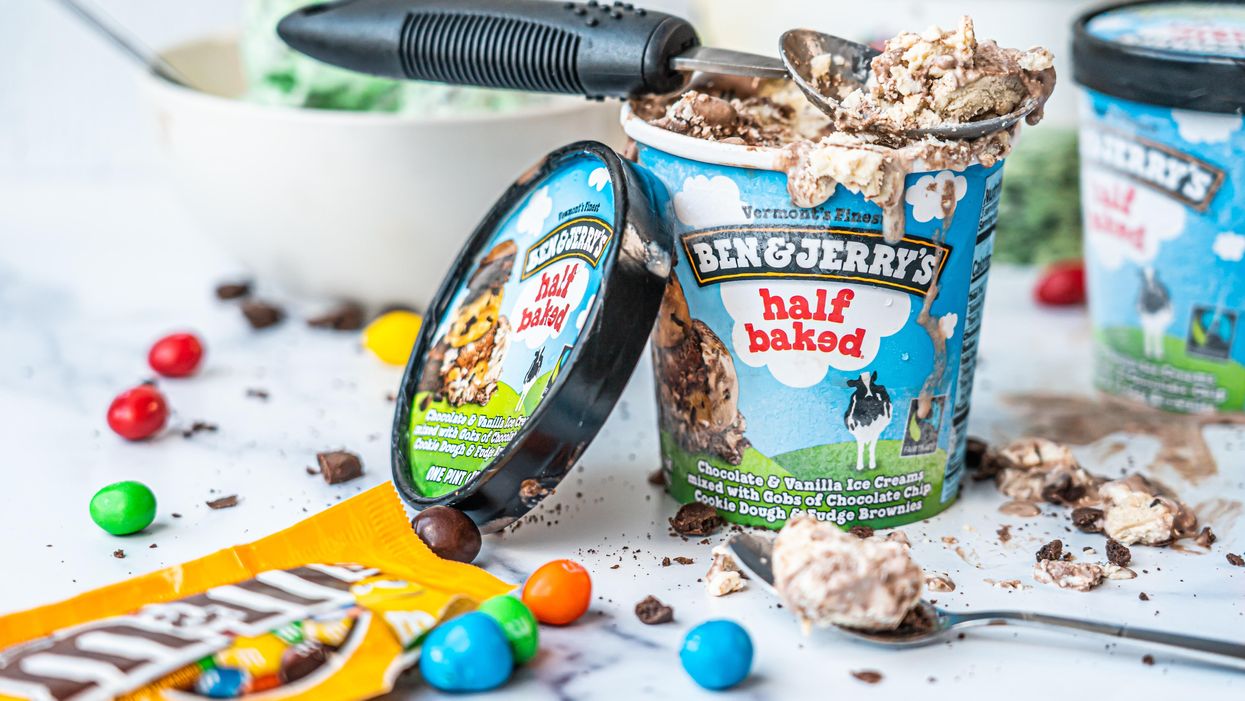Brand News
18 October 2022
Unilever partners for ASAP ice cream delivery
ASAP will deliver brands like Ben & Jerry’s, Breyers and Talenti on-demand.

Ben & Jerry's delivered. (Photo by Hybrid Storytellers on Unsplash)
ASAP will deliver brands like Ben & Jerry’s, Breyers and Talenti on-demand.

Unilever is spreading ice cream delivery to more areas of the country through a new partnership.
The maker of brands like Ben & Jerry’s, Breyers, Magnum and Talenti is set to be delivered from restaurants through on-demand delivery app ASAP.com. The service, which is owned by Waitr, will also deliver from Unilever’s The Ice Cream Shop, which is a virtual storefront where shoppers can pick from Unilever's ice cream selection. The service will be available at more than 2,000 locations, including a recent expansion that will bring it to New York’s Tri-State area.
The partnership will extend the number products offered through ASAP, and enable a new revenue stream for restaurants that partner with the delivery service, the companies said.
“We are thrilled to begin this partnership with ASAP as Unilever continues to expand the many ways customers across the country can enjoy our frozen treats,” said Russel Lilly, General Manager of North American Ice Cream, in a statement. “It’s not only exciting to further grow The Ice Cream Shop’s customer base with ASAP, but we are also honored to build out restaurant partners’ menus with our variety of offerings to bring something sweet to every customer.”
Unilever is making a concerted effort to spread ice cream delivery, which makes on-demand particularly important given the risk of the product melting before it arrives. The consumer goods company launched pilots earlier this year to deliver ice cream via RoboMart in Los Angeles, as well as by drone in North Carolina and Texas. By the end of summer, it made delivery from The Ice Cream Shop accessible nationwide through Instacart. Magnum ice cream has also made an appearance in the metaverse through a gallery in Decentraland.
For its part, ASAP CEO Carl Grimstad called the move “a high-profile implementation of our new business model to ‘deliver anything’ to consumers, same day, from any type of business.” ASAP said it operates in 1,000 cities around the United States.
Campbell Soup Company CEO Mark Clouse offered thoughts on messaging amid inflationary shifts in consumer behavior.
After months of elevated inflation and interest rate hikes that have the potential to cool demand, consumers are showing more signs of shifting behavior.
It’s showing up in retail sales data, but there’s also evidence in the observations of the brands responsible for grocery store staples.
The latest example came this week from Campbell Soup Company. CEO Mark Clouse told analysts that the consumer continues to be “resilient” despite continued price increases on food, but found that “consumers are beginning to feel that pressure” as time goes on.
This shows up in the categories they are buying. Overall, Clouse said Campbell sees a shift toward shelf-stable items, and away from more expensive prepared foods.
There is also change in when they make purchases. People are buying more at the beginning of the month. That’s because they are stretching paychecks as long as possible.
These shifts change how the company is communicating with consumers.
Clouse said the changes in behavior are an opportunity to “focus on value within our messaging without necessarily having to chase pricing all the way down.”
“No question that it's important that we protect affordability and that we make that relevant in the categories that we're in," Clouse said. "But I also think there's a lot of ways to frame value in different ways, right?”
A meal cooked with condensed soup may be cheaper than picking up a frozen item or ordering out. Consumers just need a reminder. Even within Campbell’s own portfolio, the company can elevate brands that have more value now, even if they may not always get the limelight.
The open question is whether the shift in behavior will begin to show up in the results of the companies that have raised prices. Campbell’s overall net sales grew 5% for the quarter ended April 30, while gross profit margins held steady around 30%. But the category-level results were more uneven. U.S. soup sales declined 11%, though the company said that was owed to comparisons with the quarter when supply chains reopened a year ago and expressed confidence that the category is seeing a longer-term resurgence as more people cook at home following the pandemic. Snacks, which includes Goldfish and Pepperidge Farm, were up 12% And while net sales increased overall, the amount of products people are buying is declining. Volumes were down 7%.
These are trends happening across the grocery store. Campbell is continuing to compete. It is leading with iconic brands, and a host of different ways to consume them. It is following that up with innovation that makes the products stand out. Then, it is driving home messaging that shows consumers how to fit the products into their lives, and even their tightening spending plans.
Campbell Soup is more than 150 years old, and has seen plenty of difficult economic environments. It is also a different business today, and will continue to evolve. At the end of the day, continued execution is what’s required.
“If it's good food, people are going to buy it, especially if it's a great value,” Clouse said.